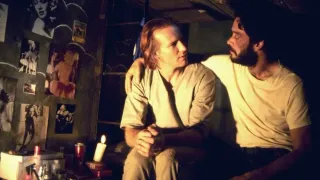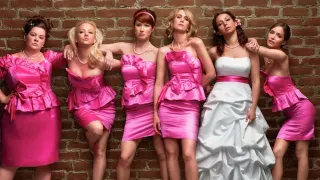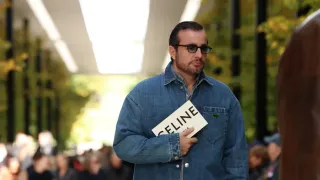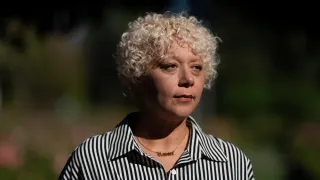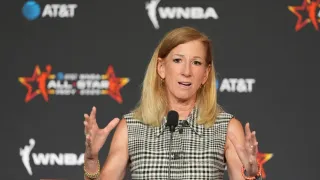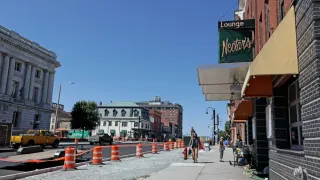November 13, 2014
Number of SF Out Electeds Shrinks
Kilian Melloy READ TIME: 5 MIN.
Due to the poor showing of out candidates in San Francisco this election cycle, the number of LGBT electeds in the city will dwindle in size.
There are currently eight officeholders, all gay men, in the city and county of San Francisco. The number will fall to six by the end of the year due to the departures of longtime officeholders Assemblyman Tom Ammiano (D-San Francisco) and College Board Trustee Lawrence Wong.
Ammiano, first elected to a school board seat in 1990 and then to the Board of Supervisors four years later, is termed out of his legislative seat this year. And the man he endorsed to succeed him, gay District 9 Supervisor David Campos, was defeated in the race for the city's 17th Assembly District seat by his straight colleague, District 3 Supervisor and board President David Chiu.
It marks the first time since 1996 that San Francisco will not have a gay or lesbian legislator representing it in the state Assembly. And due to Chiu able to potentially serve 12 years in the Assembly, it could be 2026 before an LGBT candidate recaptures the seat, which includes the city's eastern neighborhoods.
Wong, who has served on the community college board since 1994, opted not to seek re-election this year. Both of the gay candidates seeking college board seats last week lost, leaving Rafael Mandelman the sole LGBT community member on the board, which is currently not meeting due to a special trustee being appointed during the college's accrediting issue.
Of the 10 out candidates on last week's ballot, the only person who won was gay District 8 Supervisor Scott Wiener, who easily clinched a second four-year term.
Campos has two more years left before he is termed off the board. The three other remaining out lawmakers are state Senator Mark Leno (D-San Francisco), who will be termed out in 2016 and is contemplating running for mayor in 2015; city Treasurer Jose Cisneros, who is expected to run for a four-year term next fall; and longtime BART board member Tom Radulovich, who first won election to his seat in 1996 and will be up for re-election again in 2016.
While the number of out electeds in San Francisco is shrinking, across the bay in Alameda County, where many LGBT people have moved to in search of affordable housing, the polar opposite is occurring. Due to a slew of LGBT candidates winning their races last week, there will soon be a dozen LGBT officeholders serving in various positions at the city and county level throughout Alameda County.
"That tells you something, doesn't it," said Wayne Friday, the Bay Area Reporter's former longtime political editor.
The political power of San Francisco's LGBT community, said Friday, "is waning. It is going down."
The dwindling number of LGBT community members winning public offices in San Francisco is alarming to community leaders who have spent years fighting to ensure the LGBT community has political representation both at City Hall and in the statehouse.
Lesbians have not held a political office in the city since 2008. And it's been five years since an LGBT person served on the school board.
Looking at the city's changing demographics and the lack of a so-called farm team of LGBT people holding "down ticket" offices, such as school board seats, Friday predicted it is likely that Campos's supervisor seat covering the Mission district could be won by a straight candidate in 2016.
"That seat is not, in my mind, gay. The community will still find somebody to run out there," said Friday. "It would have to be an Hispanic gay or lesbian if they want to hold that seat. Basically, it is an Hispanic seat out there now."
Even Wiener's District 8 seat centered in the city's gay Castro district could eventually see a straight person be elected to it, he said.
"I think in 10 years the Castro will be straight for Chrissakes," said Friday.
Last week's B.A.R. banner headline "Bad night for out candidates" over stories about lesbian Oakland At-Large City Councilwoman Rebecca Kaplan's defeat in her city's mayoral race and Campos's second-place showing in the Assembly race was ironic, said Friday, considering neither won the paper's endorsement.
Both candidates saw their straight opponents attract considerable support from within their cities' respective LGBT communities. It is indicative of how many LGBT people no longer view electing an out candidate as their main priority after years of seeing the LGBT community win legal and social advancements toward greater rights and acceptance.
"LGBT people don't singly vote for LGBT candidates. But we need to think as an LGBT community how we get elected politicians with our ideals," said Jamie Rafaela Wolfe, a transgender woman who works at a nonprofit school for children with emotional and developmental issues.
Wolfe has now twice lost bids for a seat on the San Francisco Unified School District Board of Education. In both of her campaigns, one of her main arguments was the need for an LGBT voice on the board, particularly to serve as a role model for queer students.
"It is a question I am going to think a lot about, why no one on the school board is LGBT," said Wolfe, a member of the Harvey Milk LGBT Democratic Club, which endorsed her school board bid.
Like Wolfe, there are those who still argue that LGBT people best know what the issues are that need to be addressed within the LGBT community and, by serving in public office, are more apt to fight for the passage of laws or funding of LGBT-specific services.
It is a concern shared by Equality California, the statewide LGBT advocacy group, which this fall for the first time endorsed out candidates in a number of local races around the state. Its political action committee did so, said EQCA Executive Director Rick Zbur, after the organization faced criticism from LGBT leaders in Long Beach for not helping gay City Councilman Robert Garcia in his mayoral race, which he won in June.
"Everyone said why are you guys doing nothing to help this guy; he is the future of our movement. That resonated with me," said Zbur. "We decided to do a pilot program in some local races."
EQCA plans to "rethink" its role for the next election cycle, said Zbur, and could increase its participation in more local races to ensure LGBT people continue to serve in public office.
Running in his first political campaign, Mark Murphy, a gay man who is a communications and marketing consultant, landed in last place among the nine candidates seeking three school board seats despite having the B.A.R. 's endorsement, as did Wolfe, and the backing of the Alice B. Toklas LGBT Democratic Club.
"I have said this for years: the good and drawback to LGBT people being less polarizing," said Murphy, "is that you run the risk of not having a strong base."
An LGBT person running a citywide race, he said, needs to build a broad coalition of support in order to win.
"It can't just be an LGBT person running for office based on being an LGBT person," he said. "San Francisco has become too diverse to run simply on sexual identity."
